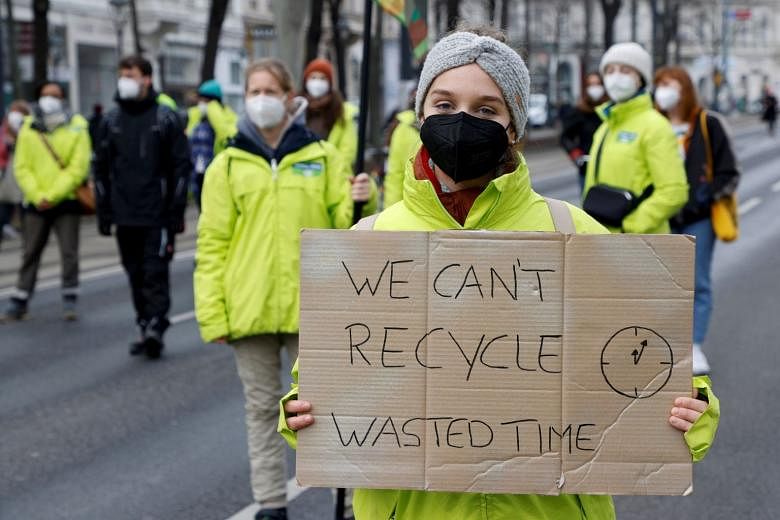NEW YORK (REUTERS) - United Nations Secretary-General Antonio Guterres on Thursday (May 6) urged leaders of the Group of Seven richest countries to make "substantial" pledges to help developing countries tackle climate change over the next five years.
"For some, this means at least doubling their latest climate commitments," Guterres told the Petersberg Climate Dialogue.
The G7 members are Britain, the United States, Canada, France, Germany, Italy and Japan and their combined gross domestic product is about US$40 trillion (S$53.4 trillion) - a little less than half of the global economy. The G7 leaders are due to meet in June.
"Developed countries must honour their long-standing promise to provide US$100 billion dollars annually for climate action in developing countries," Guterres said. "The upcoming G7 Summit is a pivotal moment." So far, climate aid fallen shy of that goal, which was set in 2009.
Estimates vary for what has been delivered, but a report by the Organization for Economic Co-operation and Development last year said that only US$79 billion was transferred in 2018 - the highest annual transfer at that point.
"I call on the leaders of the G7 to take the lead, with other developed countries following, to make substantial climate finance pledges for the coming five years," Guterres said.
A new target for climate finance will be discussed at the next major UN climate summit, known as COP26, in Glasgow in November.
The Intergovernmental Panel on Climate Change has estimated that an average of US$3.5 trillion per year will be needed just in energy investments between 2016 and 2050 to achieve a target of limiting global warming to 1.5 degrees Celsius.
Guterres also again pushed for a tax on carbon and an end to coal use.
"We can no longer afford big fossil fuel infrastructure anywhere. Such investments simply deepen our predicament. And they are not even cost-effective. Fossil fuels are now more expensive than renewables," he said.

